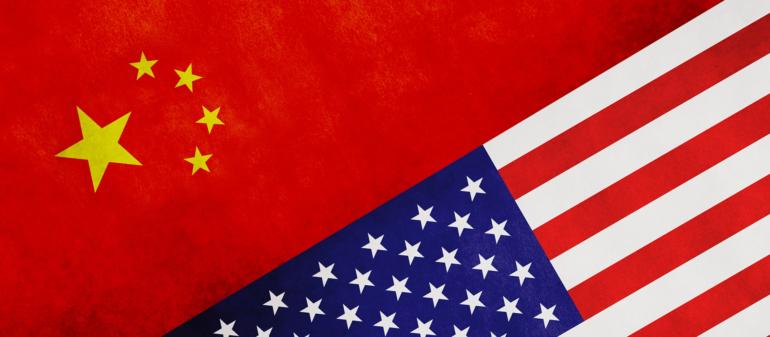
(Photo: CGTN)
China announced Monday it would increase tariffs on $60 billion worth of US exports in response to the Trump administration’s recent tariff hike on $200 billion in Chinese goods.
The tariff increases will affect a variety of US products, including agricultural goods, chemicals, metals, fabrics, and household items like coffee and batteries. Almost 2,500 items will see 25 percent tariff hikes, while over 2,000 other products will experience incremental bumps.
Though US President Donald Trump insisted in a tweet on Monday that “there is no reason for the US consumer to pay the tariffs,” White House administration officials have acknowledged that US consumers and the firms that import the goods will pay the cost, according to the Los Angeles Post.
Meanwhile, empirical studies have concluded that Americans are paying. The cost of tariffs imposed last year had "fallen entirely on US businesses and households," which found that US companies were paying $3 billion more in taxes because of the tariffs, according to a Goldman Sachs quote cited in a popular study from the Federal Reserve Bank of New York and Columbia and Princeton universities.
With talks at a standstill, investors and executives are settling in for a longer fight.
“This is a self-inflicted wound that will be catastrophic for the nation’s economy,” Rick Helfenbein, president and CEO of the American Apparel & Footwear Association told to the Washington Post.
“By tightening the noose and pulling more consumer items into the trade war, the president has shown that he is not concerned with raising taxes on American families, or threatening millions of American jobs that are dependent on global value chains,” Helfenbein added.
If Trump hit all Chinese imports with a 25 percent tax, the US economic output would shrink by at least $120 billion “as companies would have to rebuild entire supply chains,” Ian Shepherdson, chief economist for Pantheon Macroeconomics, wrote in an investor note.
World stocks fell quickly and sharply after China announced countermeasures.
The S&P 500 fell 2.4 percent on Monday, recording the American stock benchmark’s worst day since early January, the New York Times reported.
For the month of May, the S&P 500 is down 4.6 percent.
“The escalation of tariffs is creating these problems that corporate America is going to have to work around,” Lori Calvasina, head of United States equity strategy at RBC Capital Markets said to the New York Times, “It’s just going to be tougher for the smaller guys (companies).”
For US households, raising tariffs definitely makes them suffer more when companies cannot handle the tariff increases themselves.
“The importers are going to pass on some or all of the tariff to the consumer and that will become much more readily apparent and harder to mask,” Nelson Dong, a partner with Dorsey & Whitney in Seattle said to the Washington Post.
“It is going to be tough on lower-income households,” said economist Mary Lovely of Syracuse University.
Trump “has trashed trade policy and thereby harmed the American people,” according to the New York Times, “In this case, nobody wins, and everybody loses.”


